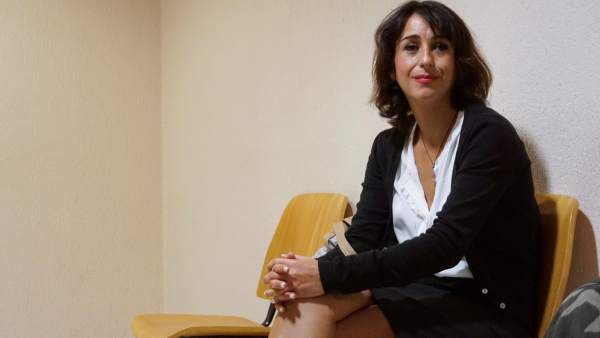Jolly Bimbachi kissed her two sons goodbye as they set out for a month-long trip to Lebanon with their father, back in 2015.

She gave each of her boys a watch with a note attached, saying: "I love you. We'll be back together in time."
The family vacation turned into a nightmare for Bimbachi shortly after the plane flew out of Pearson Airport in Toronto.
Within days, she got a call from her husband Ali Ahmad — he had no intention of returning with their children.
Omar Ahmad was six years old at the time. His brother, Abdal-Geniy, was four. It's now been two-and-a-half years since Bimbachi, who grew up in Chatham, Ont.and met her husband during a visit to Lebanon, has seen her children.
She is in the midst of a protracted legal battle that has inched along one painstaking day after another. Even though she has since won legal custody of her children from Canadian courts, and has divorced her husband, her fight is not nearly over. International child abduction cases can take years to resolve.
"I'm pleading with the Canadian government and the Lebanese government to come together … to try to solve this," Bimbachi said as tears stream down her face. "Already, my sons sometimes think I don't want to be with them, or that I don't want them, or I don't even love them. I want them to know I would do anything for them."
Attempts to reach Ahmad for comment were unsuccessful.
100 new cases a year
Officials from Global Affairs Canada, which receives about 100 new reports of international child abductions a year, confirmed they are working with Bimbachi, but would not speak to details of her file.
The bulk of Global Affairs cases are reported in Ontario, Quebec and B.C., according to spokesperson Brianne Maxwell, who said getting a child returned to their parents can vary in difficulty depending on the country.
"Each jurisdiction has its own laws with respect to the rights and responsibilities of minors and their parents, and in many cases dual citizenship is also a relevant factor," she wrote in an email to CBC News. "Many countries do not consider parental child abduction to be a criminal offence."
These types of cases can take years to complete, with legal costs often escalating above $100,000, according to James Marks, a Toronto based lawyer who specializes in international child abduction.
"My heart goes out to the mother and the two children, who've been separated from one another for … two years," he said. "That's just lost time for these children, who effectively have been abducted to another country."
Expensive custody battle
Bimbachi nearly collapsed when her then husband told her over the phone he was keeping her boys. The devastated mother frantically went to a filing cabinet where she kept her children's birth certificates and other identification. They were gone.
"I'll probably never see my kids again," Bimbachi recalls thinking at the time. "I didn't know how to go on. I didn't know how to do anything anymore."
She would soon realize her husband cleaned out their joint bank account as well.
Taking her fight to the courts was a financial disaster for Bimbachi, who teaches part time at St. Clair College and who also works at a craft store in Chatham. She worked with legal aid to gain custody of her two sons in Canada, but that decision carries little weight in Lebanon, where the children remain.
In March, she was finally able to divorce her husband. She also has another lawyer in Lebanon, who's been working the system overseas, trying to get a date for a custody hearing.
Having her children in Lebanon is another significant challenge. The country is not part of the 1980 Hague Convention, which is a treaty agreed upon by more than 100 countries for the speedy return of a child who is internationally abducted.
Many of the countries have similar parental laws that support having the children live in their home state. In Bimbachi's case, her two boys are Canadian citizens.
"But … Middle Eastern countries, they don't see it that way, they haven't signed up (to the Hague Convention). It's extremely difficult to apply any pressure on them," Marks said. "Even if she does get custody, the court in Lebanon may not order the children to go back to Ontario."
Bimbachi knows the risks of going to Lebanon to regain custody of her children, but she plans to go there in the coming months, just as soon as she can get a hearing before the courts.

No hay comentarios:
Publicar un comentario